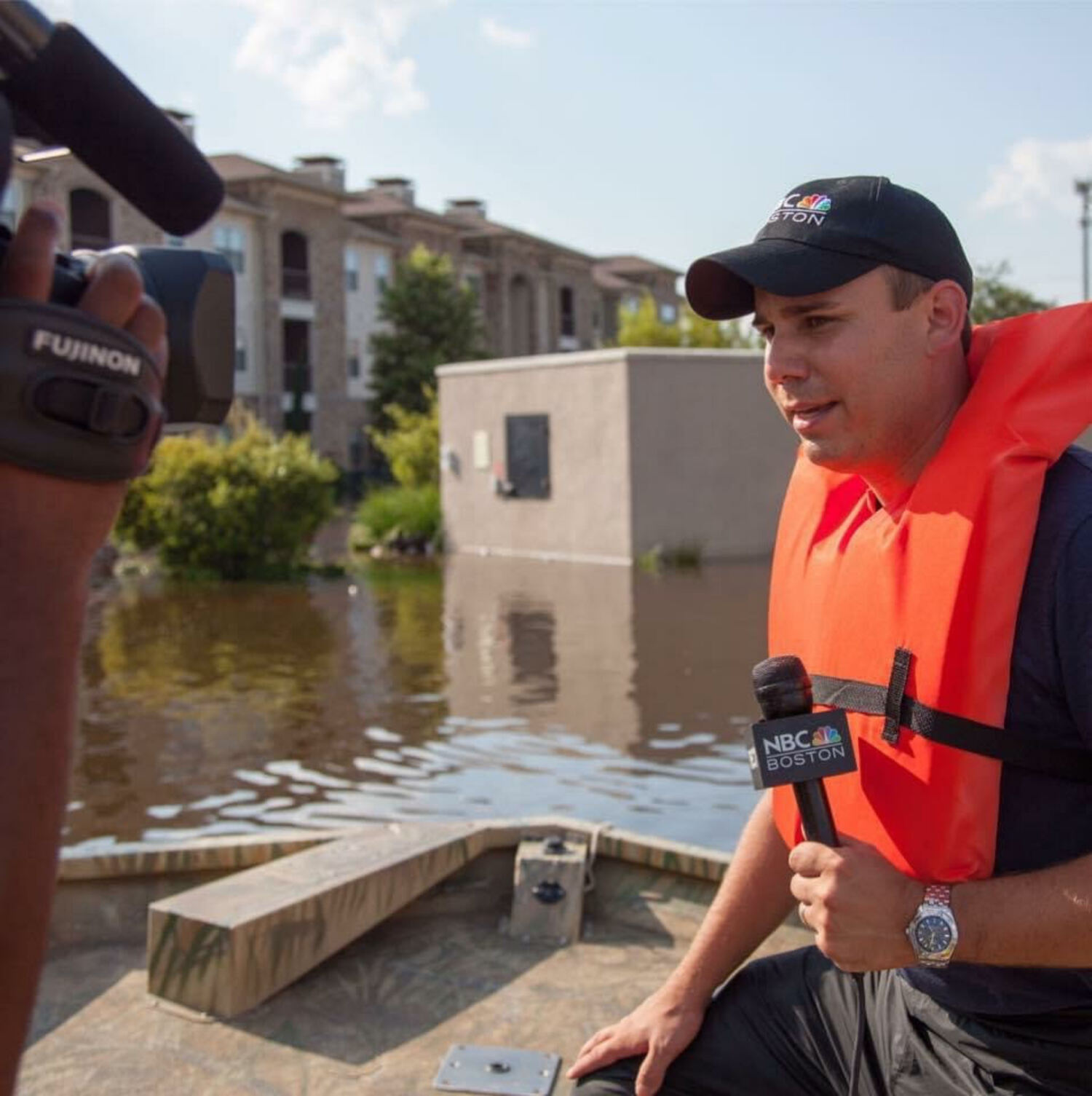
Chris Gloninger was going into second grade at Sag Harbor Elementary School when Hurricane Bob gave a glancing blow to eastern Long Island on August 19, 1991. The experience, he said, inspired him to become a weatherman, a job he held for 18 years while working for television stations across the Northeast.
But after landing a job in 2021 as the chief meteorologist at KCCI, the CBS affiliate in Des Moines, Iowa, Gloninger began to experience a new storm in the form of threatening emails that arrived in his inbox from a viewer who opposed his reporting on the effects of climate change.
“Getting sick and tired of your liberal conspiracy theory on the weather,” one stated. “Climate changes every day, always has, always will, your [sic] pushing nothing but a Biden hoax, go back to where you came from.”
Other, more threatening messages followed, including one asking for his home address, because “we conservative Iowans would like to give you an Iowan welcome you will never forget.”
The impact took its toll, and Gloninger began to suffer from the effects of post-traumatic stress disorder, which, he said, left him exhausted and unable to focus on his work.
The man responsible for the emails admitted to doing so last August and was fined, but Gloninger still felt threatened. “In Iowa, the fine for threatening someone’s life is only $150,” he said. “That doesn’t give you much peace of mind.”
Recently, he announced he was getting out of the television news business altogether and going into a less stressful line of work. July 7 will be his last day on the air.
“It was not just the initial threat but the obsessiveness,” Gloninger said this week. “Multiple times a week, he would email me these harassing messages.” Plus, Gloninger said, the sender told him he had communicated with other like-minded people about his weather reports.
He said he at first tried to engage with the viewer, but to no avail. He came to understand, he said, that the exchange was simply another example of the polarization of American political views and the growing license many people feel to express their hatred for those with different opinions, including those in the news media.
Gloninger and his wife, Cathy Danko, had purchased a house in Des Moines. “We thought we would stay here at least 10 years,” he said this week, but now they are moving back to the Northeast.
He has taken a position with the Woods Hole Group, a private consulting firm in Massachusetts that, among other things, prepares climate vulnerability studies for municipalities and designs sustainable systems to combat the effects of climate change.
Gloninger, who holds a bachelor’s degree from Plymouth State University in New Hampshire in atmospheric and climate science, will use his research skills to assist in the writing of climate vulnerability studies and his communications skills to explain the importance of preparing for future climate disruptions to municipalities and other organizations.
Gloninger said there was a certain irony in his interest in climate change, because after Hurricane Bob clipped Long Island in 1991, the region has enjoyed a lull in hurricane activity, with storms from Irene in 2011 to Isaias in 2020 having limited impacts. “After Hurricane Bob, we had nothing for two decades,” he said. “That’s a long time, and it got me interested in looking at long-term trends.”
Those trends, he added, are disturbing and show things like a 50 percent increase in the number of 2-inch rainfalls Long Island can expect to experience each year, and a general rise in temperatures over the last century, despite the fact that the Earth should be in a cooling period.
His reporting on Hurricane Irene, which caused major damage upstate, and Superstorm Sandy, which largely sparred eastern Long Island but caused widespread damage in and around New York City, further piqued his interest. “What concerns me is there is a new population [on the East End] that has never experienced a hurricane,” he said.
Gloninger was working for an ABC affiliate in Boston when Hurricane Harvey plowed into eastern Texas and Louisiana in 2017, dumping 60 inches of rain. That caught the attention of the station’s managers, who launched a weekly program on the impacts of climate change.
There was some pushback in Massachusetts, he said, but nothing like the attacks he experienced in Iowa.
Holdouts against the scientific basis of climate change warnings like to point out that the Earth has always undergone long-term periods when temperatures grow warmer or colder. Gloninger said that was, of course, true.
The difference is “it didn’t warm up as fast as it is now, and there was no human activity contributing to it,” he said.